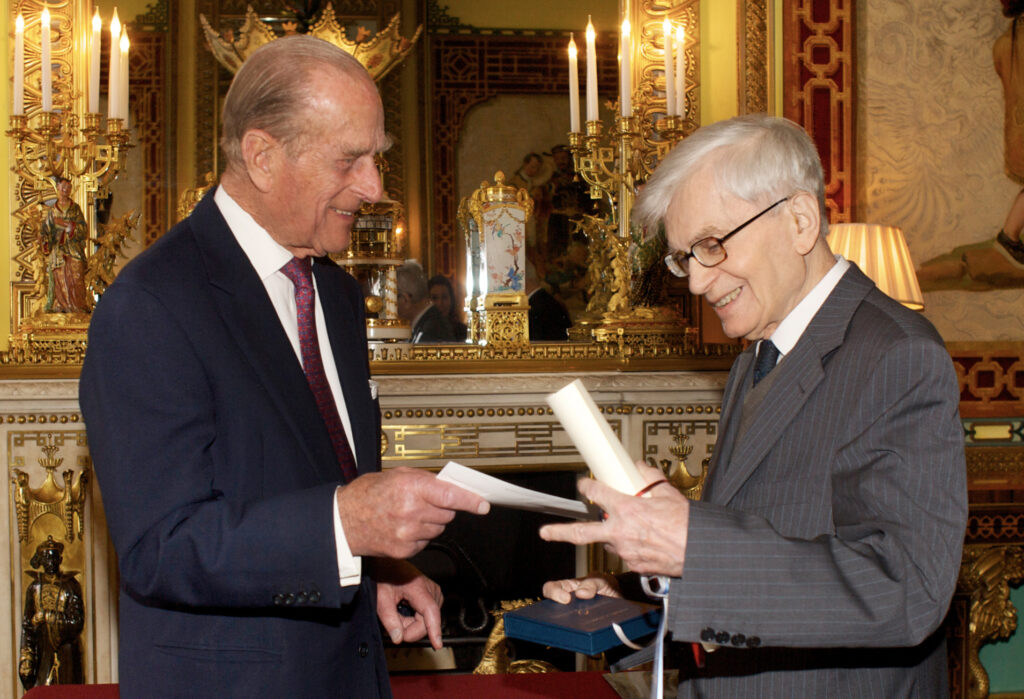Celebrating 2009 Templeton Prize Laureate Bernard d’Espagnat
By Samantha Cocove
In 1973, the first Templeton Prize was given to Mother Teresa. In 2023, we celebrate the 50th anniversary of this award. Over the next 52 weeks, we will highlight each of our laureates and reflect on their impact on the world. From humanitarians and saints to philosophers, theoretical physicists, and one king, the Templeton Prize has honored extraordinary people. Together, they have pushed the boundaries of our understanding of the deepest questions of the universe and humankind’s place and purpose within it, making this (we humbly think) the world’s most interesting prize.
Born on August 22, 1921 in Fourmagnac, France, Bernard d’Espagnat was a physicist and philosopher who contributed significantly to our understanding of the quantum realm, particularly his experiments involving Bell’s theorem. He challenged traditional notions of reality and supplied empirical proof of quantum entanglement.
Philosophy and the sciences captivated d’Espagnat’s interest at an early age. He was raised in Paris, where his father, a post-impressionist painter, and mother imbued him with a love of classic literature and the arts. He began his education at Lycée Condorcet and the École Polytechnique in Paris. D’Espagnat’s scientific curiosity later brought him to the University of Paris, where he achieved a doctorate in theoretical physics in 1950. Soon after, d’Espagnat worked a stint at CERN (European Organization for Nuclear Research) before returning to academia in 1959 as a professor at what is now University of Paris-Sud in Orsay.
One of the most notable aspects of d’Espagnat’s scientific career was his work on Bell’s theorem. Collaborating with physicist Alain Aspect, he conducted experiments that confirmed the predictions of Bell’s theorem, providing empirical evidence for the phenomenon of quantum entanglement. While d’Espagnat’s scientific work garnered recognition, he was equally committed to exploring the philosophical implications of quantum physics. He argued that quantum mechanics revealed a reality fundamentally different from our classical, everyday experiences. He coined the term “veiled reality” to describe this concealed dimension of existence, suggesting that our perceptions and measurements could only reveal a partial and abstract representation of the true underlying reality.

D’Espagnat was awarded the Templeton Prize in recognition of his explorations of the philosophical implications of quantum physics, which opened new vistas on the definition of reality and the potential limits of knowable science.
On May 5, 2009, d’Espagnat was awarded the Templeton Prize by HRH Prince Philip, the Duke of Edinburgh, at a private ceremony at Buckingham Palace.
The doctrine that the world is made up of objects whose existence is independent of human consciousness turns out to be in conflict with quantum mechanics and with facts established by experiment.
Bernard d’Espagnat
Still Curious?
Learn more about Bernard d’Espagnat.